FastLane Blog
Stay up to date with the latest updates and news brought to you by FastLane.
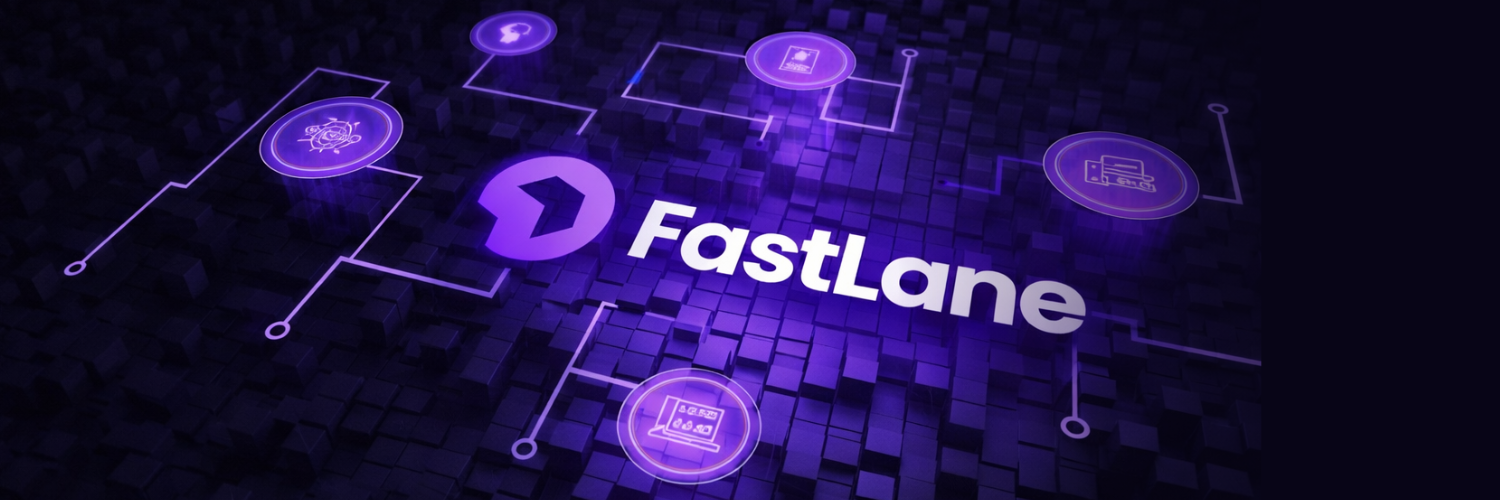
NEWS
MEV
BUIDL
Introducing the FastLane MEV Protocol: The World’s First Fully Decentralized MEV Auction for Monad Validators
In collaboration with Category Labs, Fastlane is proud to introduce the Fastlane MEV Protocol. The protocol consists of the Fastlane Sidecar: a minimal external client that optimally orders top-of-block and backrun bundles, and the Fastlane Auction Handler: a smart contract that searchers must plug into in order to participate in the auction process. The Sidecar and the Auction Handler require zero new trust assumptions or centralized third parties, such as blockbuilders, private relays, or pri
2026-01-15
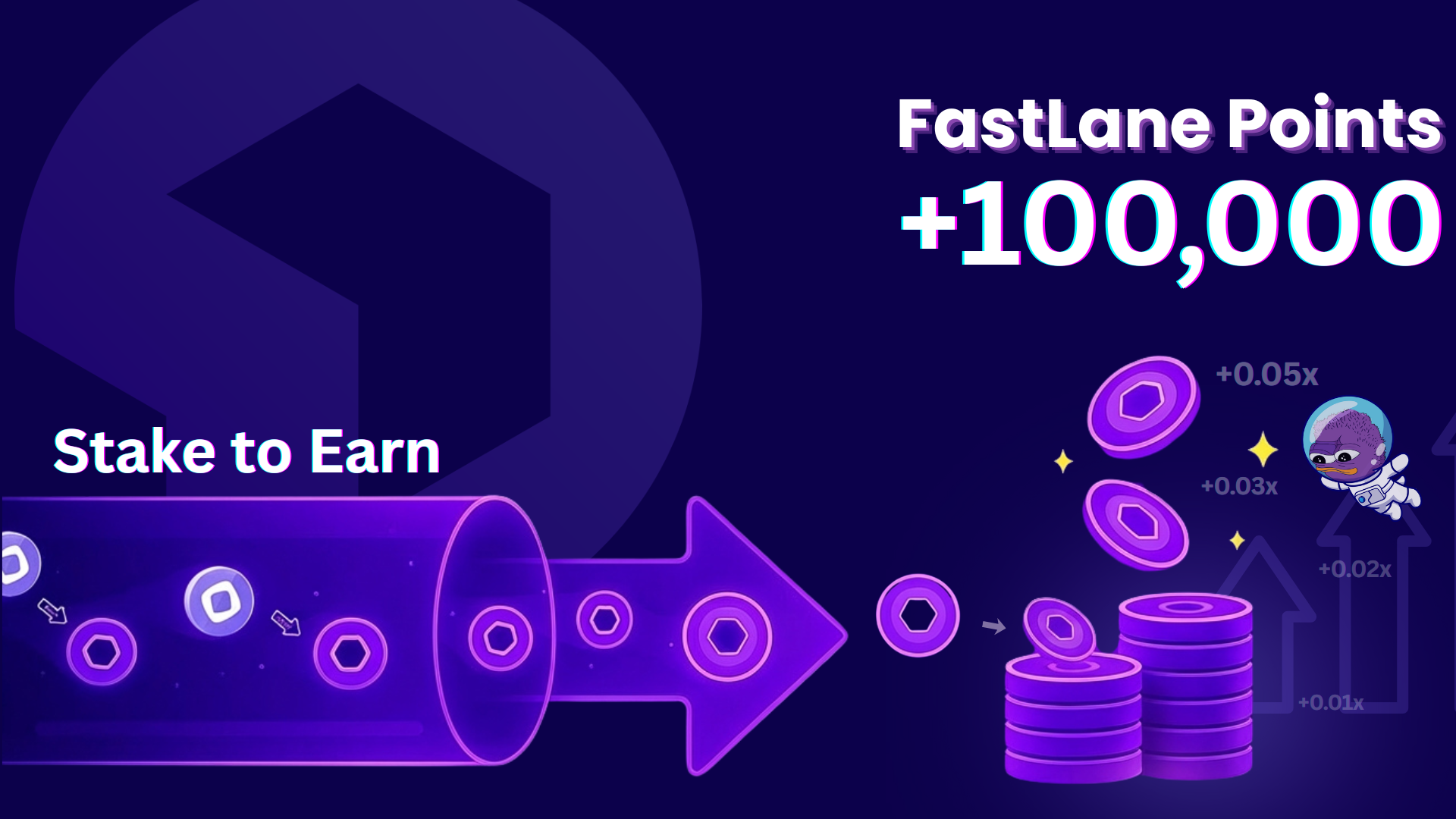
NEWS
FastLane Mainnet Points Program: The Complete Guide to Earning, Multipliers, and Early Alignment
FastLane is introducing its mainnet Points Program to provide a clear, structured, and transparent framework for users to participate in the early development of Monad’s economic foundation
2025-11-22
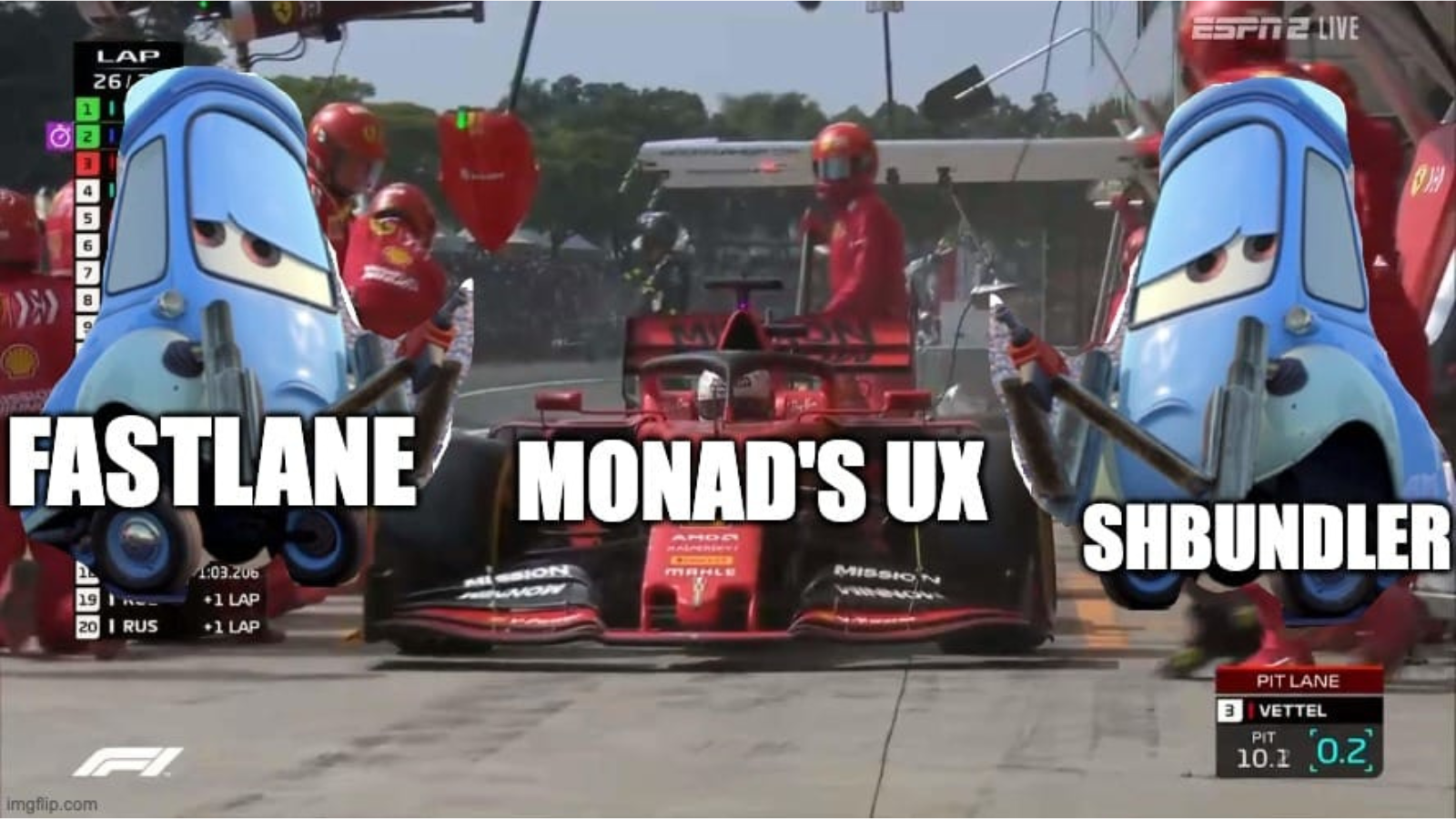
#0XMAWUKO
The FastLane shBundler: Supercharging Monad’s UX for Users and Businesses.
Introduction The cryptocurrency world has evolved significantly over the past decade, with growing recognition, adoption, and utilisation by institutions, businesses, and end-users alike. As the gap between the crypto world and the real world closes, the demand for highly scalable, cost-effective, and robust blockchains has surged. Monad is set to meet this demand with a next-generation architecture, allowing them to serve the incoming masses at a global scale. As a team with years’ worth of e
2025-02-07
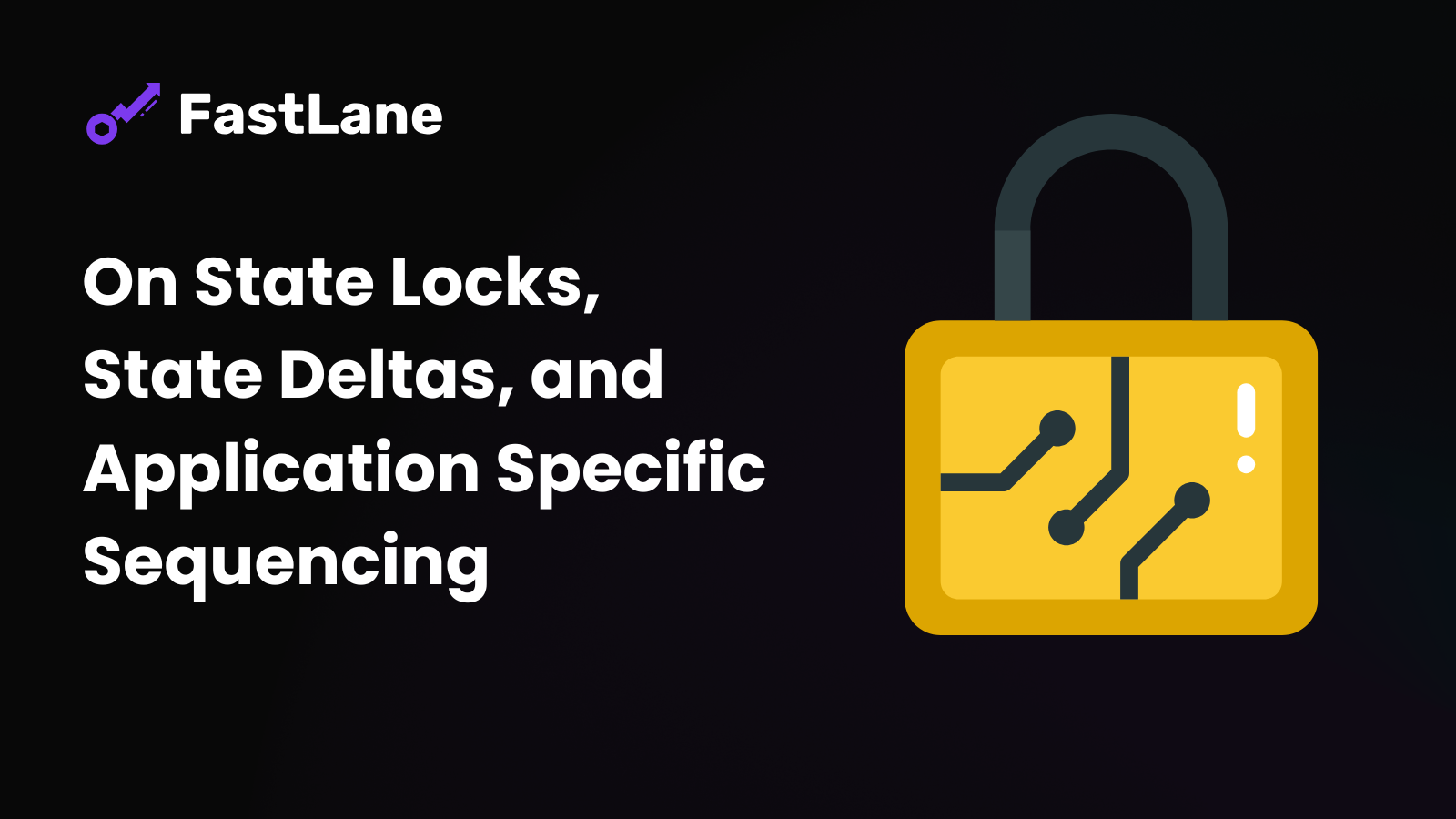
RESEARCH
ATLAS
On State Locks, State Deltas, and What Everyone Is Getting Wrong About Application-Specific Sequencing
A Broad Explanation of MEV and the Value of Accessing State Any state with utility / value that decreases upon each sequential access goes through the MEV (or PGA) crucible, where it's priced relative to what others are willing to pay for it. MEV relays reduce the externalities of the competition (e.g., spam) by increasing the predictability of sequencing. This consequently reduces the expectation of profit from probabilistic approaches (e.g., spam again) to accessing state while it's still va
2025-01-30
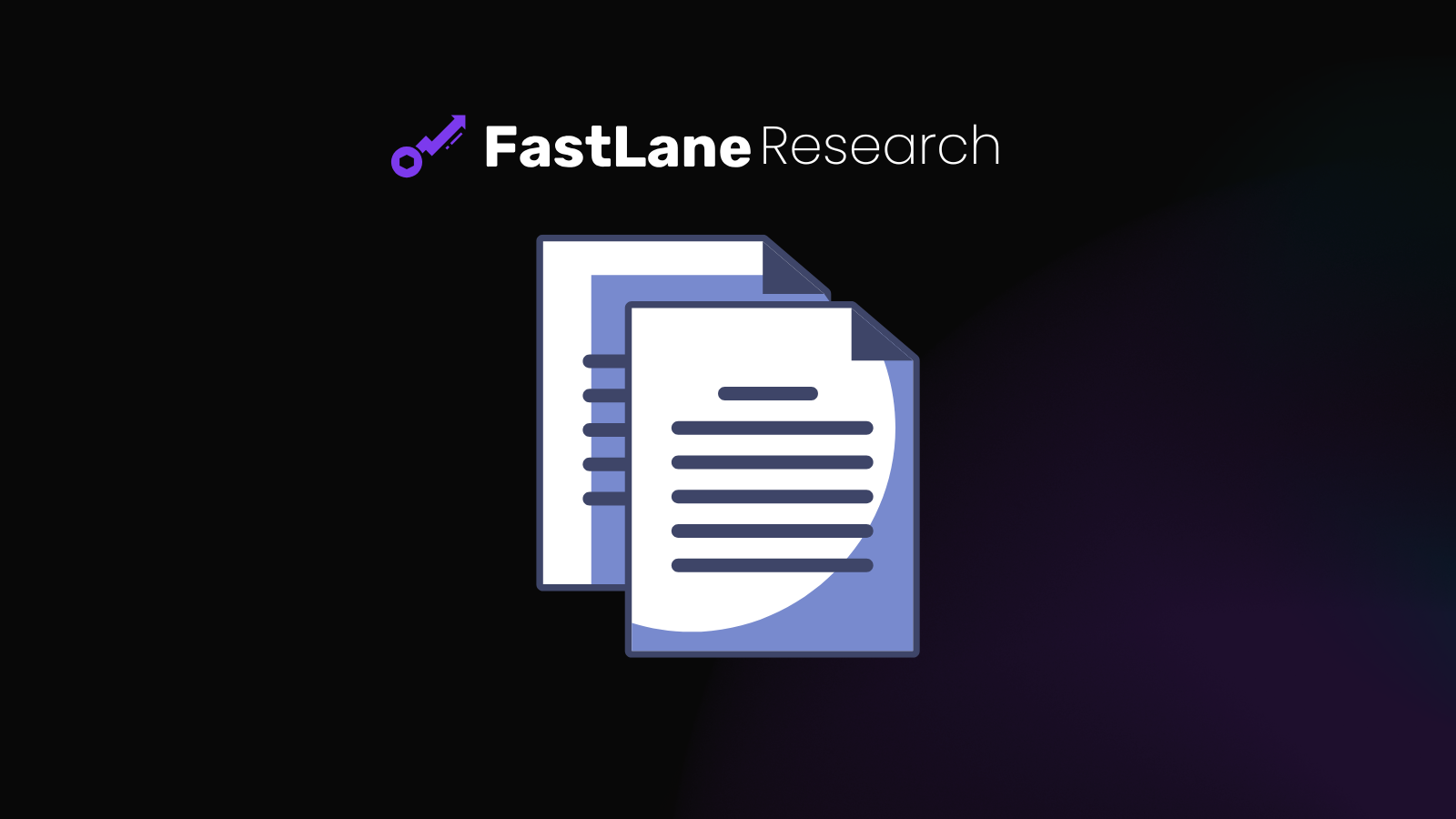
An Introduction to Blockchain Mechanism Math, Terminology, and Hieroglyphics for Deeply Casual People who want to Sound Smart when Discussing White Papers with their Peers
By Alex Watts et al. Abstract: Mechanism Designers working in DeFi really like writing white papers. They like it a lot. Perhaps too much. They also like writing these papers in an ancient, hieroglyphics-based language that is difficult for a normal, socially-adjusted person to decipher. This is unfortunate because most of the math and game theory is actually quite simple once you understand their alien terminology. In this paper, I'll give you the tools you'll need to sound smart when discussi
2025-01-03
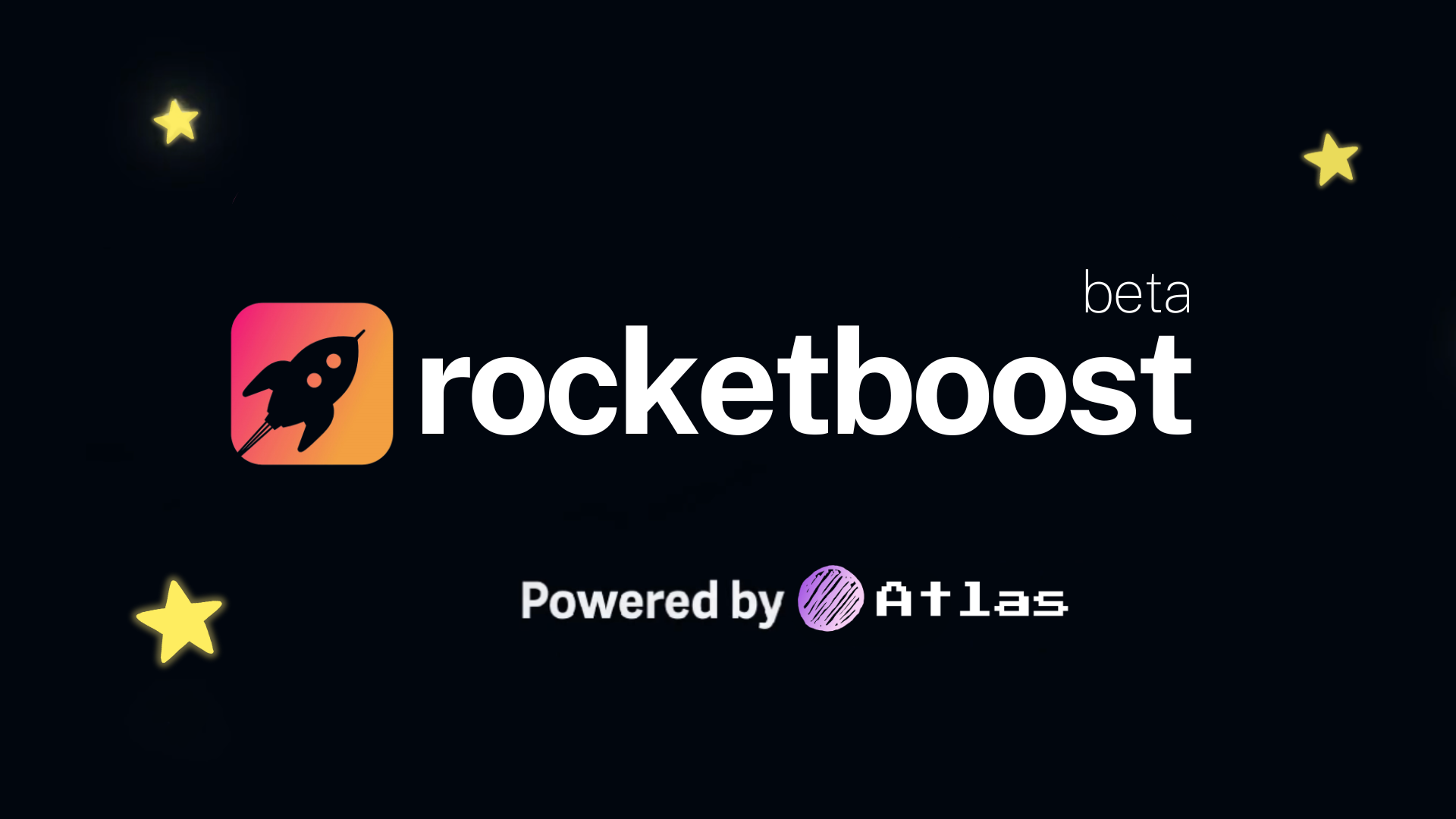
BUIDL
ATLAS
Introducing Rocketboost, powered by Atlas and the world’s first fully onchain DRFQ
The Atlas Protocol is the world’s first generalized execution abstraction protocol for the EVM, providing app and frontend developers the ability run intent or MEV orderflow auctions to capture value for their users and stakeholders. Atlas developers can build and configure their “Atlas Module” (an Atlas DappControl contract) for their use case and value flow requirements, including: OEV auctions, backrun OFAs, intents/swap RFQs, rebalancing auctions and LVR resistant AMMs/hooks. Having success
2024-08-23
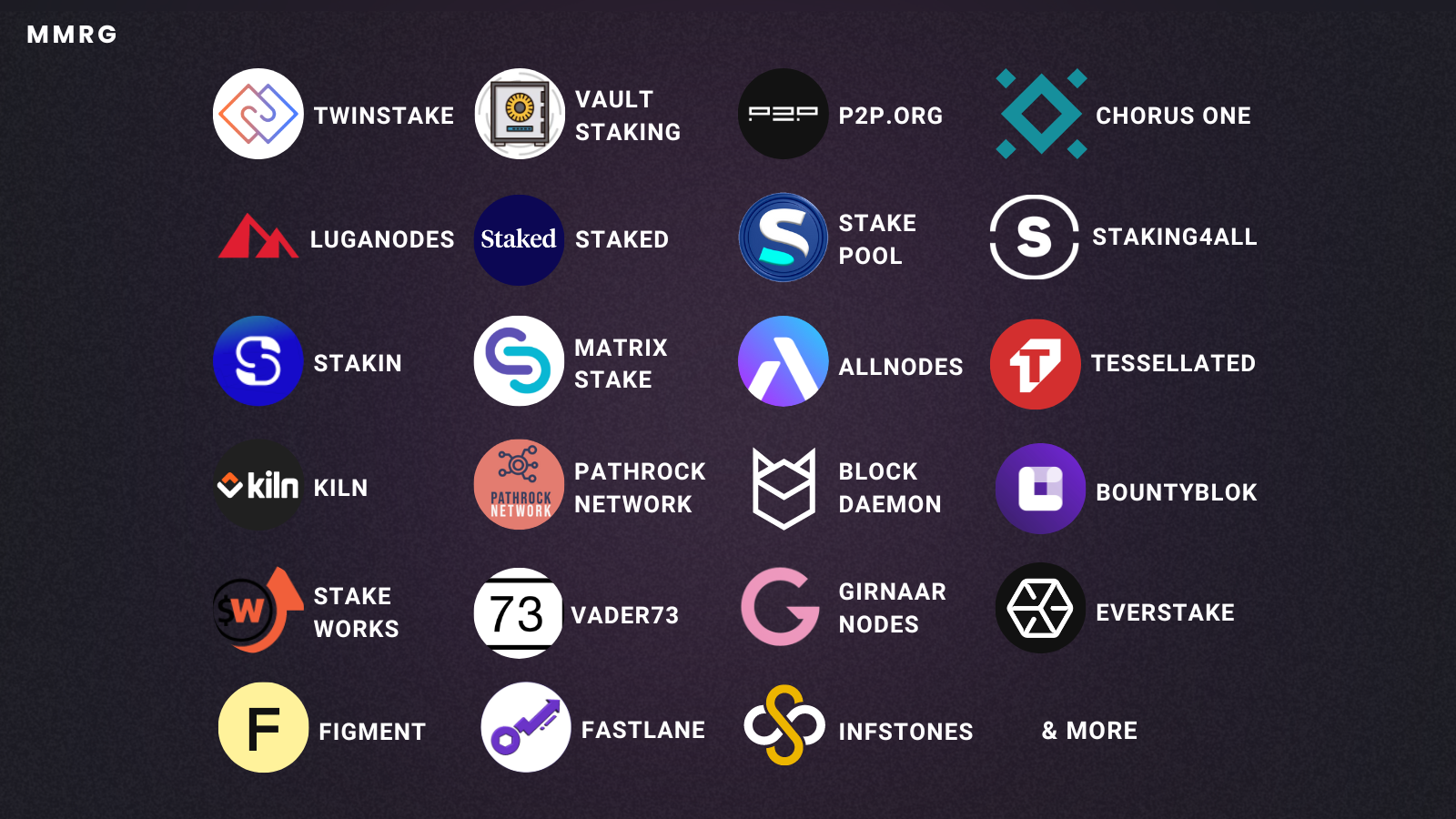
MONAD
Announcing the Monad MEV Research Group
Gmonad. FastLane Labs is excited to announce the Monad MEV Research Group (MMRG), a loose coalition of validators, protocols, applications and MEV researchers..
2024-07-01

ATLAS
Introducing Atlas Backruns
By Jacob Greene - FastLane Labs Atlas is a generalized execution abstraction protocol for building application-specific order flow auctions on the EVM. Because of its generality and flexibility, Atlas can be used for a number of execution abstraction use-cases such as backrun order flow auctions, OEV auctions, and intent auctions. All of these auction types can be purpose-built by application developers in what we call an Atlas Module. While developers can always write their own modules or fork
2024-04-25
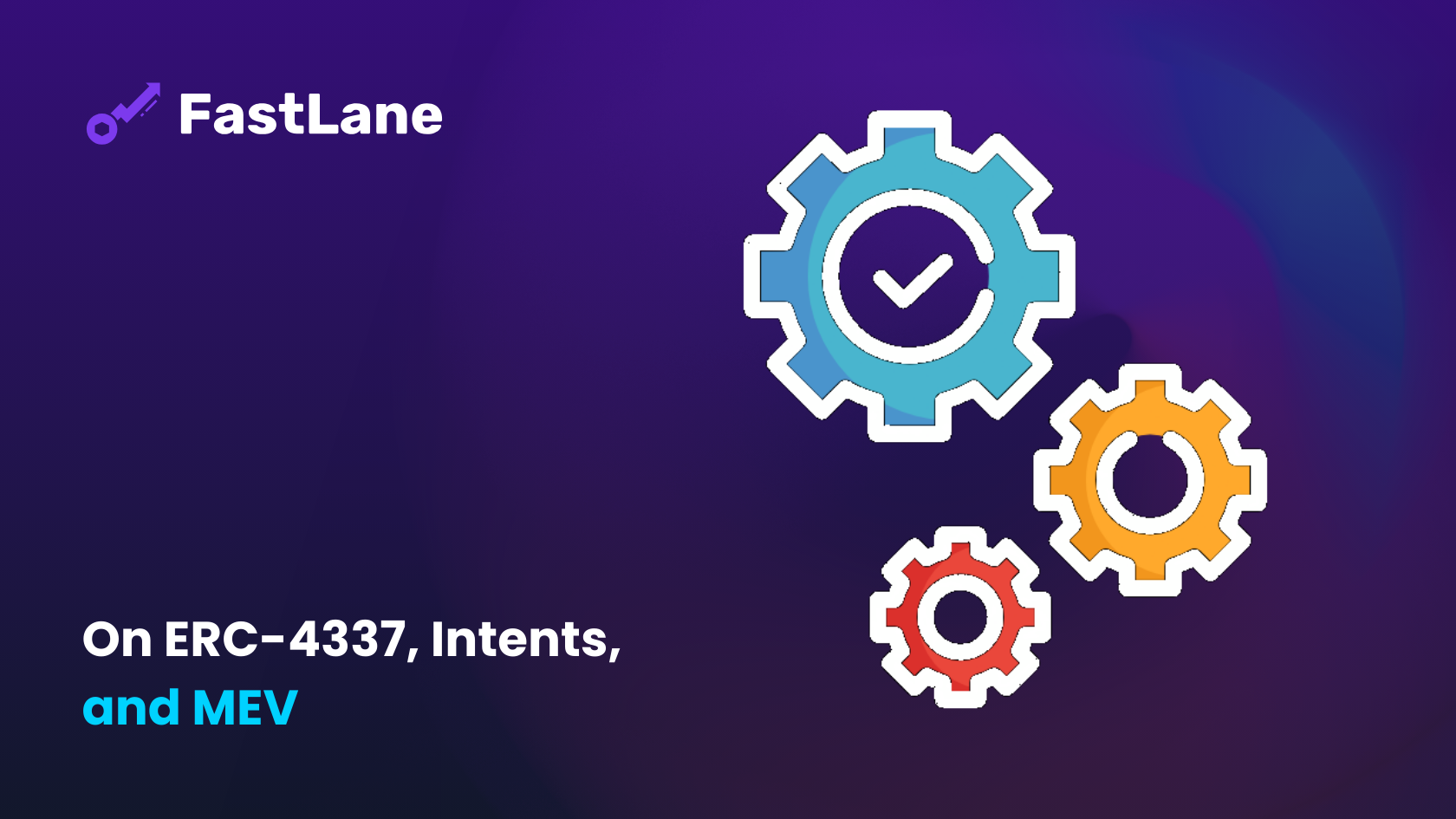
#BEN
On ERC-4337, Intents, and MEV
A look into the overlap between account abstraction, intents and MEV, and important tradeoffs to consider when designing applications to take advantage of them.
2024-04-17
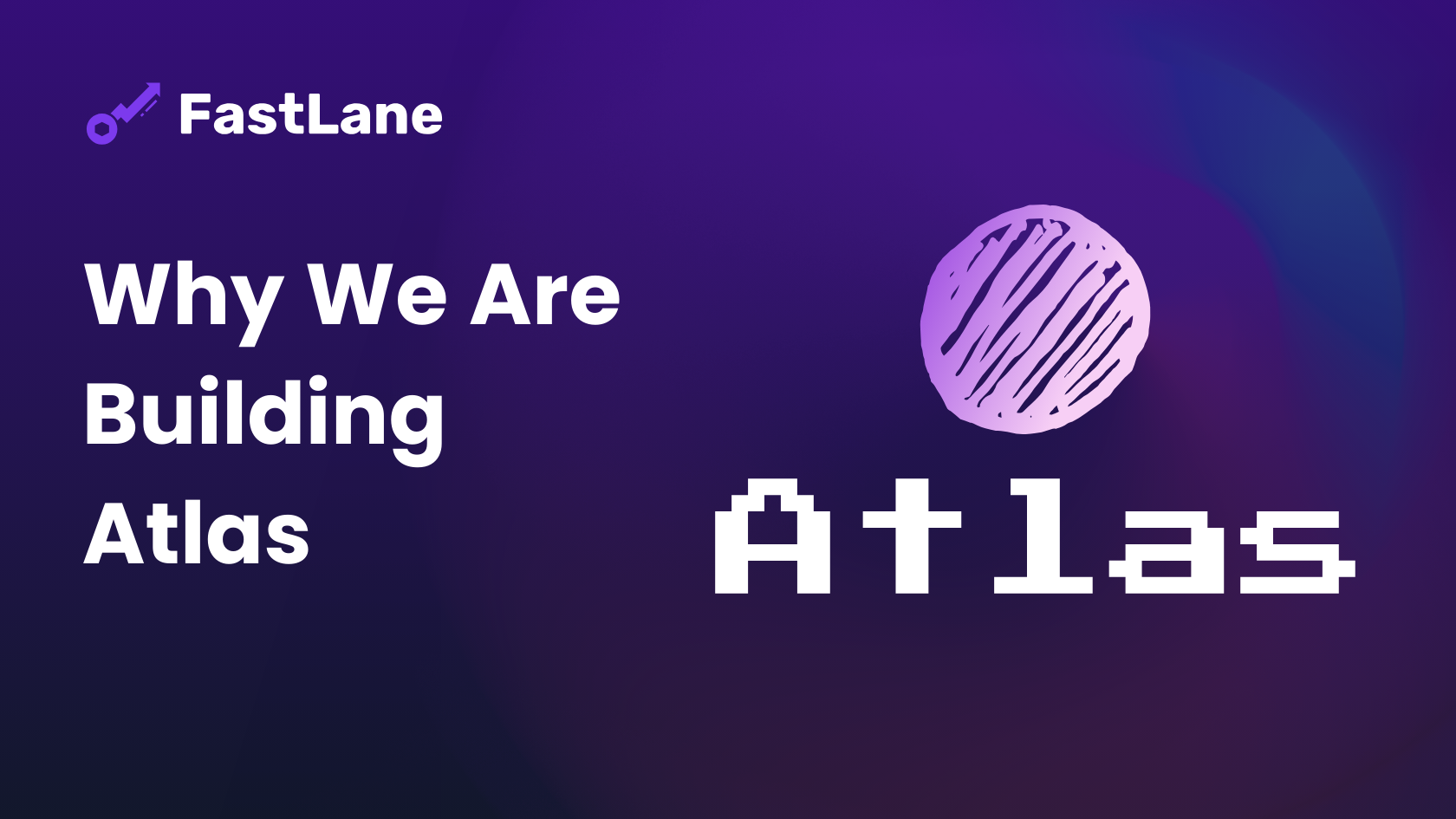
ATLAS
Why we are building Atlas
Blockchains are governed by cause and effect. Their state only changes when something acts upon them to change it. This cause is usually a transaction. This means if something changes and we want to represent that in a blockchains state, we’re going to need a transaction. For example a user could decide they want to exchange one of their tokens for another, or the price of a token on another platform could change. These state changes have consequences. If a user interacts with a liquidity pool
2024-04-10
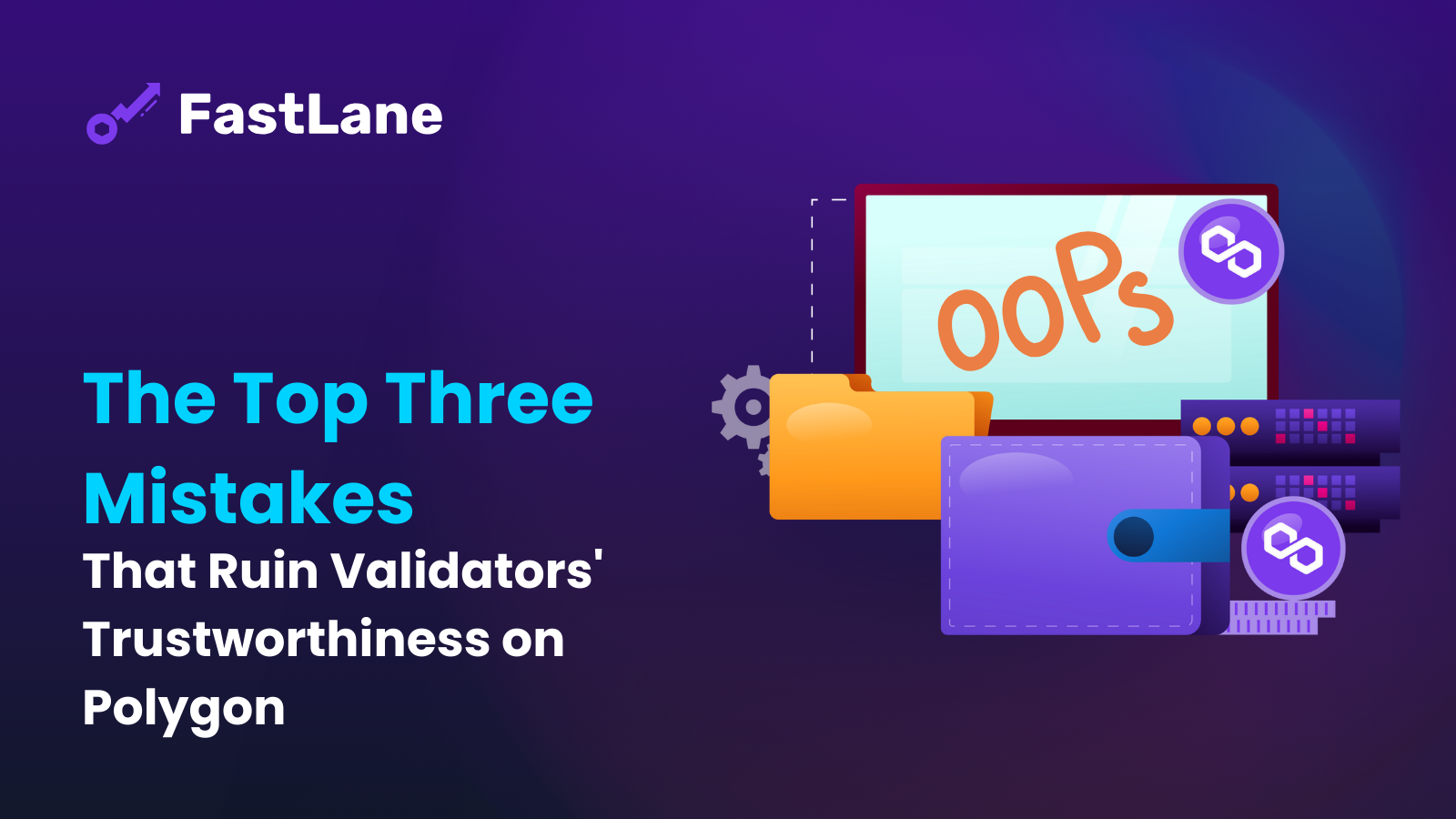
VALIDATORS
The Top Three Mistakes That Ruin Validators' Trustworthiness on Polygon
Trust is the bedrock upon which decentralized systems thrive. For Polygon Validators, maintaining trustworthiness is not just a matter of reputation; it's a critical factor that determines their success in the ecosystem. However, even the most seasoned validators can sometimes falter, making mistakes that can erode the trust they've painstakingly built. Let's delve into the top three mistakes that can jeopardize a validator's trustworthiness on the Polygon network. 1. Inadequate Infrastructu
2023-09-29
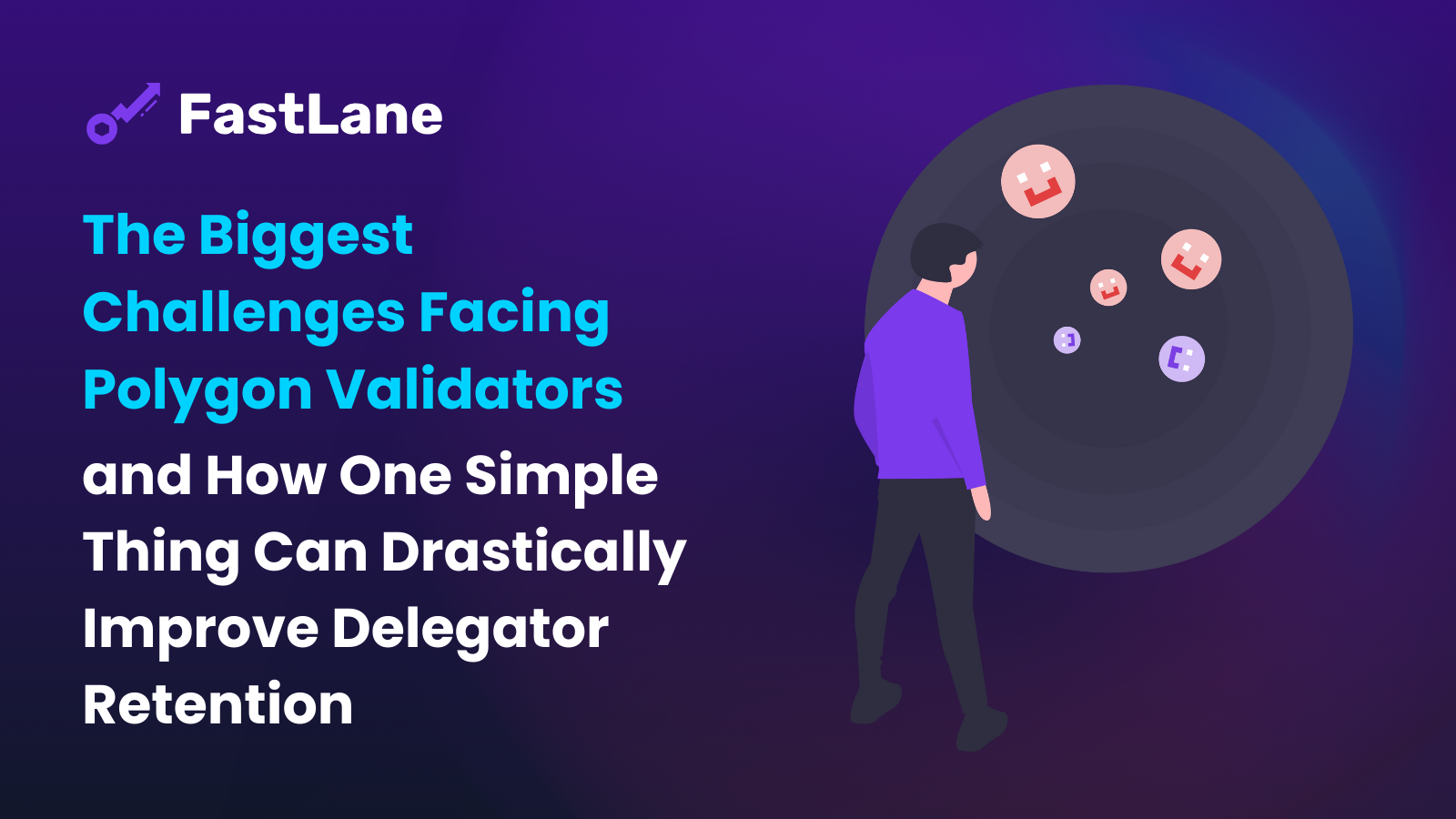
VALIDATORS
The Biggest Challenges Facing Polygon Validators and How One Simple Thing Can Drastically Improve Delegator Retention
The Polygon network is becoming a big player in DeFi, offering scalability and low transaction costs. However, as the network grows, so do the challenges for validators. This article aims to shed light on the most pressing issues facing Polygon validators and how a simple solution can significantly improve delegator retention. The Validator's Dilemma Validators are the backbone of the Polygon network, responsible for validating transactions and creating new blocks. However, the role comes
2023-09-28
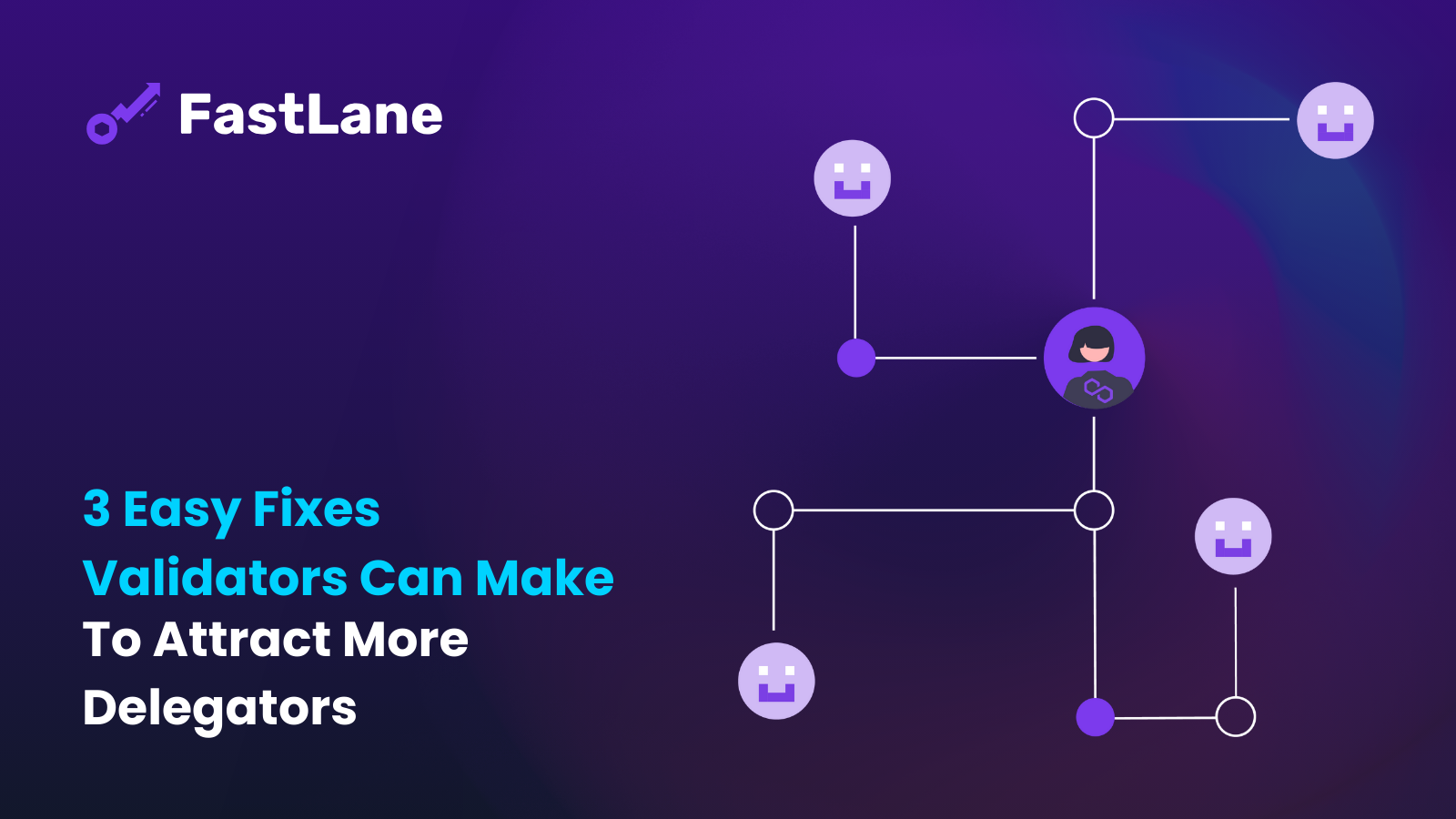
VALIDATORS
3 Easy Fixes Validators Can Make to Attract More Delegators
Validators: Boost appeal with transparency, enhanced security, and optimal performance. Discover 3 fixes to attract more Polygon delegators.
2023-09-22
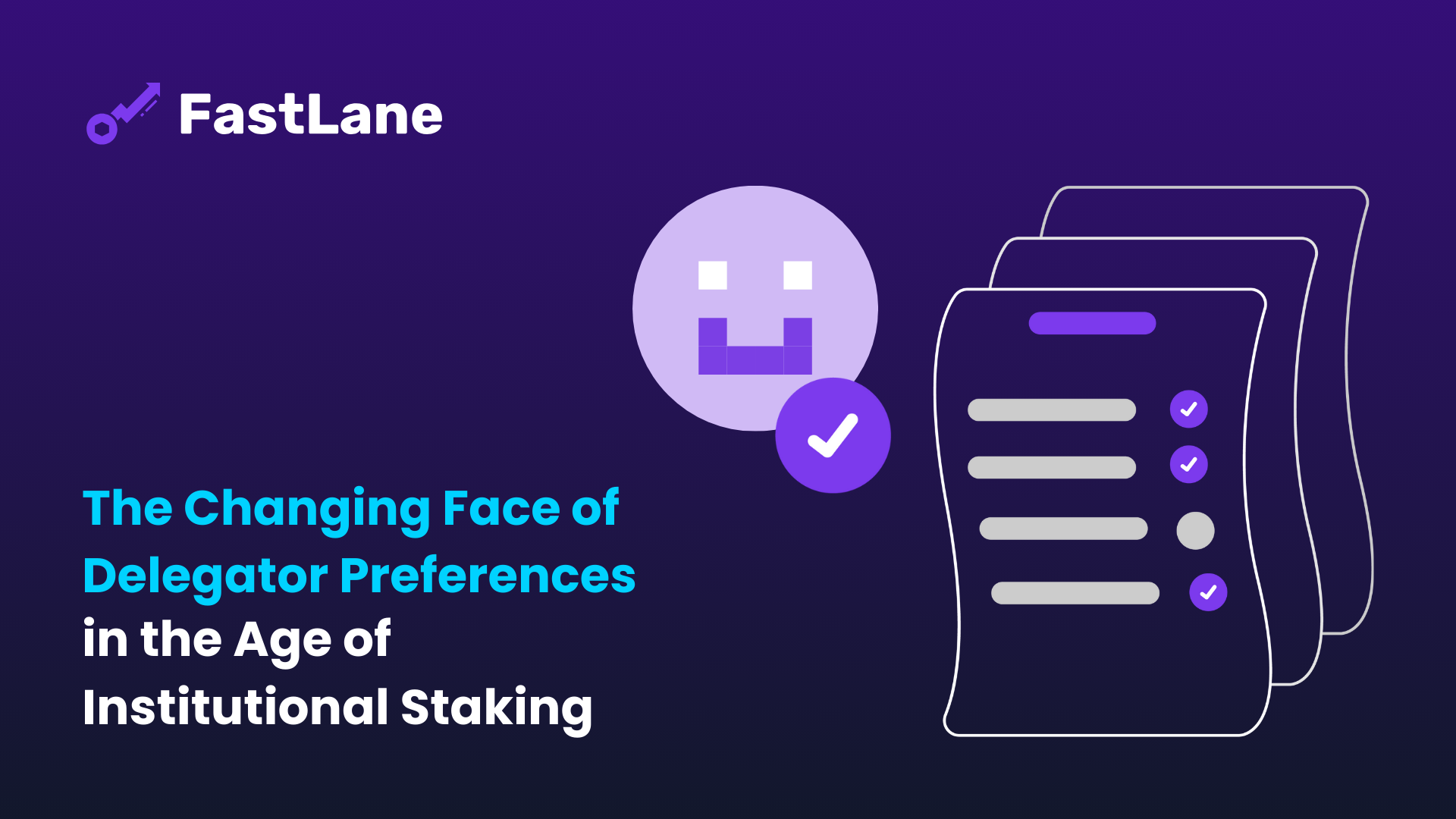
VALIDATORS
FINANCE
The Changing Face of Delegator Preferences in the Age of Institutional Staking
Institutional staking is redefining delegator expectations on Polygon. For success, validators must prioritize security, governance, and long-term growth and more.
2023-09-16
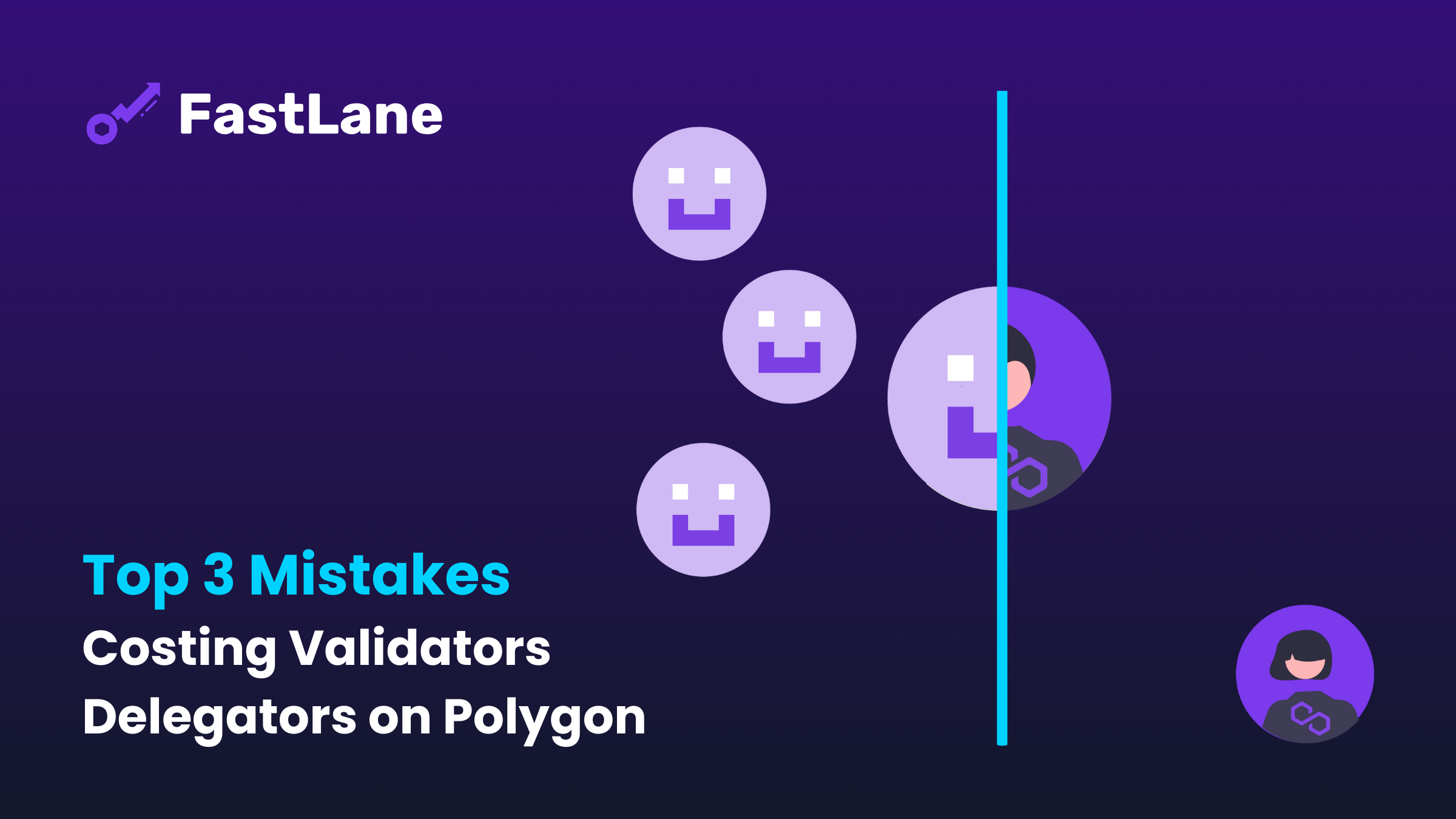
VALIDATORS
The Top 3 Mistakes That Ruin Validators Chances of Attracting More Delegators on Polygon
Learn how to navigate the top 3 pitfalls that Polygon Validators face in attracting more delegators. Get insights on zkEVM, improve your infrastructure, and meet institutional staker expectations.
2023-09-08
